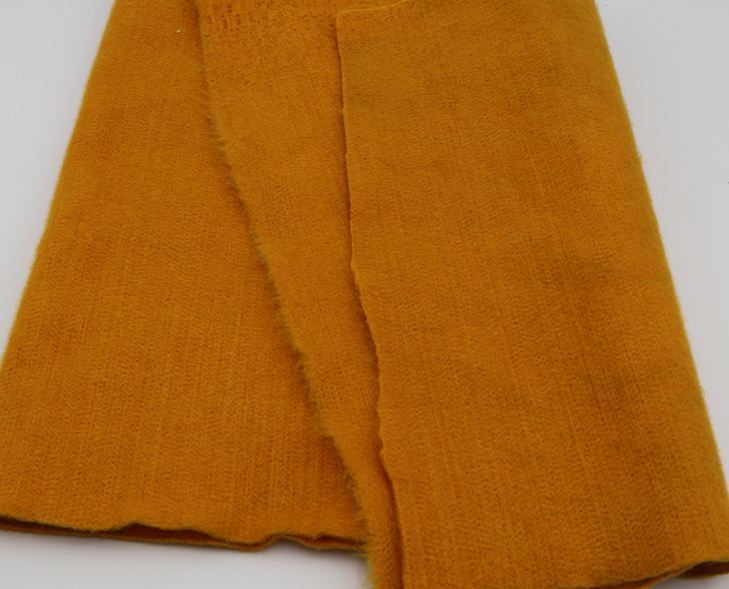Polyimide flame-retardant fabric covers high-temperature equipment to reduce the spread of production fires
Jul 24,2025

In industries such as chemical engineering, metallurgy, and power generation, high-temperature equipment (such as reactors, boilers, and thermal pipelines) is extremely prone to fire or even explosion in the event of leaks or overheating. Traditional fire blankets (such as asbestos and fiberglass) are difficult to meet the safety needs of modern industry due to their large weight, easy aging, and short protection time. Polyimide flame-retardant fabrics, with their superior high-temperature resistance, lightweight nature, and long-term protection, have become the optimal solution for covering high-temperature equipment and preventing the spread of fire.
Fatal Risks of High-Temperature Equipment Fires
Thermal radiation ignition: The surface temperature of the equipment can reach over 500℃, easily igniting nearby combustibles.
Liquid/gas leaks: When chemical pipelines rupture, flammable media contacting high-temperature surfaces can instantly cause explosions.
Electrical spark hazards: Sparks from short-circuiting electrical equipment may ignite combustible dust or steam.
Defects of Traditional Protective Materials:
Asbestos blankets: Heavy (≥10kg/m²), carcinogenic risk, easily pulverizes when wet.
Fiberglass cloth: Temperature resistance is only 400℃, fiber shedding after long-term use.
How does polyimide flame-retardant fabric work?
1. Active flame retardancy: Cutting off the fire propagation chain
Carbonization barrier mechanism: When exposed to fire, the surface rapidly carbonizes, forming a dense heat insulation layer (low thermal conductivity) to prevent heat transfer to the equipment or surroundings.
Non-melting drip characteristics: Inherently flame-retardant, no molten drips, avoiding secondary ignition.
Instantaneous high-temperature resistance: Can withstand short-term impacts of 1200℃ (such as welding sparks, metal slag).
2. Long-term protection: Withstanding continuous high-temperature environments
Long-term temperature resistance of 260℃, short-term temperature resistance of 500℃ (such as boiler wall thermal radiation).
Anti-aging performance: Long service life in high-temperature, oily, acidic, and alkaline environments.
3. Safety compatibility: Adaptable to complex industrial scenarios
Anti-static treatment: Surface resistance 10⁶~10⁸Ω, avoiding static sparks.
Chemical corrosion resistance: Resistance to acid, alkali, and organic solvent corrosion (such as acid mist environments in chemical plants).
Application Scenarios and Installation Schemes
Fire protection cover for chemical reactors
Problem: When the reactor leaks, flammable liquids contacting the high-temperature shell can cause explosions.
Solution: Wrap the reactor body with polyimide flame-retardant fabric and secure it with anchor straps.
Effect: Leaking droplets are intercepted by the flame-retardant fabric, and the fire cannot spread.
Fire isolation of thermal pipelines
Problem: High temperatures on the pipeline surface ignite surrounding cables or insulation materials.
Solution: Wrap polyimide fireproof cloth (overlap width ≥10cm) and bond with high-temperature adhesive.
Effect: The surface temperature of the pipeline is reduced by 40%, eliminating the risk of thermal radiation ignition.
Power equipment protection
Problem: Sparks spatter when the transformer overheats or short-circuits.
Solution: Custom-made fireproof cover with heat dissipation holes (temperature resistance grade >500℃).
Effect: Prevents the spread of sparks and ensures the safety of adjacent equipment.
Temporary protection for welding operations
Problem: Flying sparks ignite nearby oil drums or cables.
Solution: Hang a polyimide fireproof curtain covering a 3-meter radius.
Effect: Sparks extinguish instantly upon contact with the fabric, with no risk of melting through.
Through material innovation and engineering design, polyimide flame-retardant fabrics provide a lightweight, long-lasting, and highly reliable fire protection solution for high-temperature equipment. In today's increasingly stringent industrial safety standards, it has become one of the technologies for preventing fire spread.
Related Posts
Contact Us
E-mail:
gdkaidun@163.com
Phone/WeChat:
86-131-3828-6677
Address:
Room 401, Building 21, No. 1, Keqing Road, Yundonghai Street, Sanshui District, Foshan City, Guangdong Province





